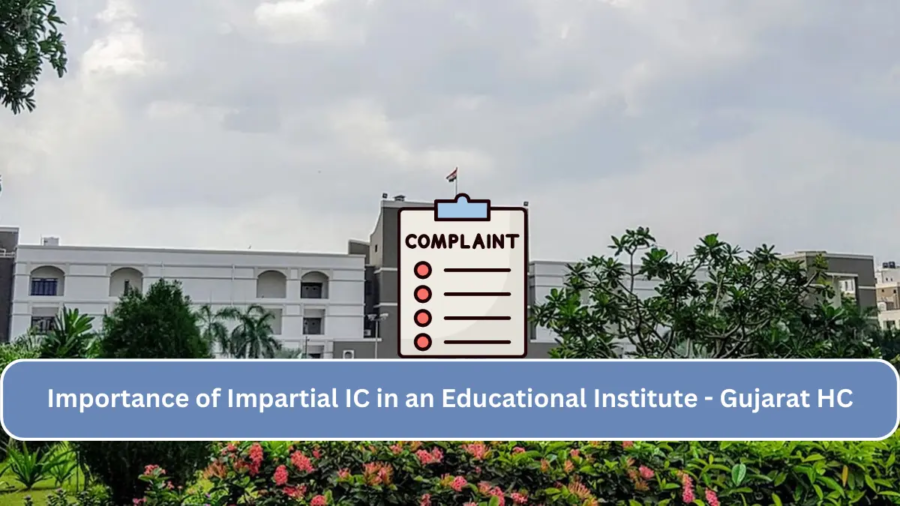Introduction:
The Gujarat National University (GNLU) recently faced scrutiny in a suo motu Public Interest Litigation (PIL) in the Gujarat High Court concerning allegations of rape by a second-year law student against a batchmate. In this judgement the Gujarat High Court underscored the importance of transparent and impartial mechanisms for addressing sexual harassment complaints within educational institutions like GNLU, ensuring the protection and rights of students.
Facts of the Case:
A second-year law student accused a batchmate of rape, prompting the Gujarat High Court to examine GNLU’s mechanisms for handling sexual harassment complaints.
Contention of the Petitioner:
The advocate for the Petitioner, acting as Amicus Curiae, underscored the necessity of investigating instances of sexual harassment within GNLU. They emphasized the need for a transparent reporting mechanism that bypasses manual intervention to ensure complaints are not suppressed or manipulated.
Response of the Respondent:
The Respondent (GNLU) informed the Court about the reconstitution of a fact-finding committee to probe the allegations.
Court’s Observation:
The Gujarat HC raised concerns about the efficacy of GNLU’s mechanisms, particularly in cases where the accused may influence the handling of complaints. The Chief Judge emphasized the necessity for complaints to reach the Internal Committee (IC) constituted under the POSH Act without external intervention, ensuring impartiality and transparency.
Court’s Decision:
In response to the submissions made by the Amicus Curiae, the Court directed the Respondent to submit an affidavit detailing the measures implemented by the Internal Committee to guarantee that complaints are received without manual intervention. This directive aimed to address concerns regarding potential manipulation or suppression of complaints, especially when the perpetrator is associated with the institution.
The Court rejected suggestions of involving police inspectors in overseeing complaint boxes, highlighting the need to first establish a body immune to external pressures before implementing such measures.
-By Adv.Deeksha Rai
 Cart is empty
Cart is empty



